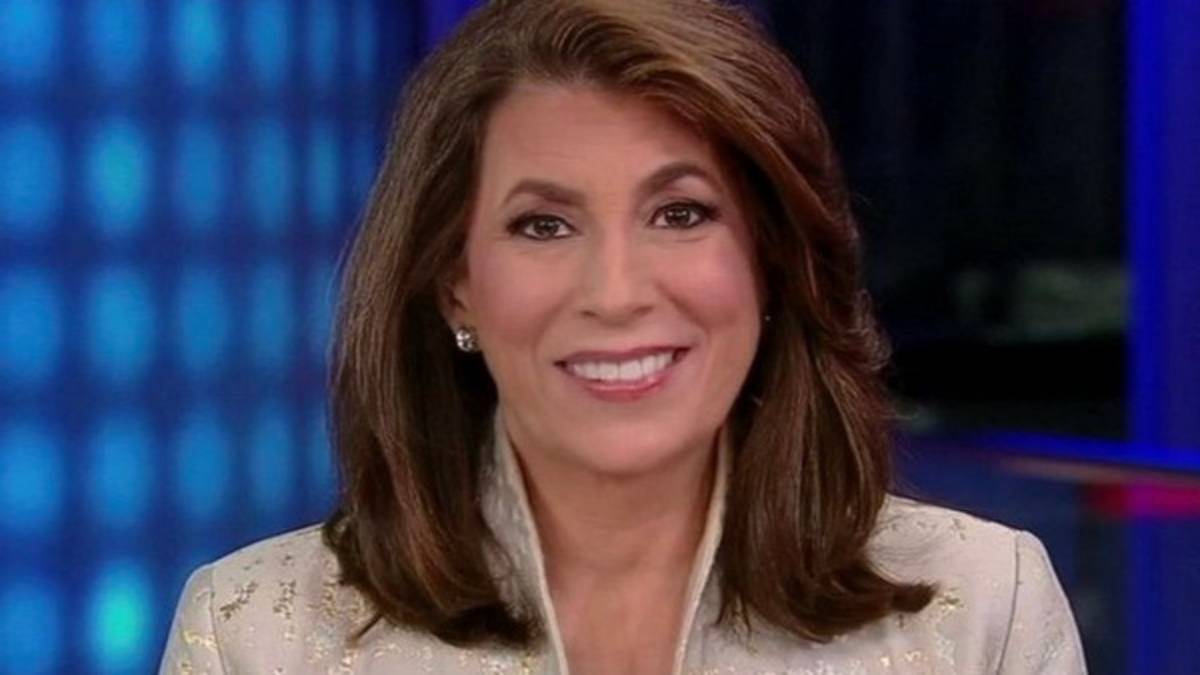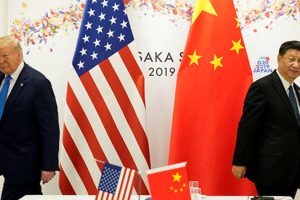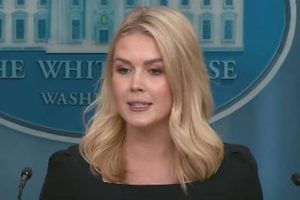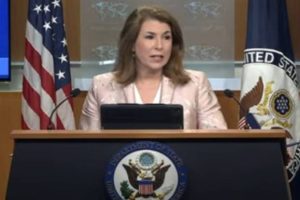The U.S. State Department on Tuesday emphasized its ongoing efforts to secure a ceasefire in the Middle East and shift the dynamics on the ground, with spokesperson Tammy Bruce expressing optimism about the future of the region and renewed diplomatic momentum.
Speaking during a press briefing, Bruce said, “We are working constantly to have a ceasefire and to change the trajectory on the ground. That has not stopped. We’re very excited about the future.” She also noted America’s enduring support for both the people of Gaza and key ally Israel, highlighting the appointment of Ambassador Mike Huckabee as the new U.S. envoy to Israel.
Bruce also addressed the growing concern of global antisemitism. “As antisemitism surges around the world, our message to Jewish communities remains unchanged: The United States stands with you. We will fight antisemitism with unwavering determination and advocate for the safety and security of Jews everywhere.”
Turning to the issue of Iran, Bruce confirmed that discussions between the U.S. and Iranian officials are ongoing, facilitated by Oman. She referenced a recent meeting between U.S. Special Envoy Steve Witkoff and Iranian Foreign Minister Abbas Araghchi, describing the talks as “very positive and constructive.” A follow-up meeting is scheduled for next Saturday.
Bruce quoted Ambassador Witkoff’s firm stance: “A deal with Iran will only be completed if it is a Trump deal. Any final arrangement must set a framework for peace, stability, and prosperity in the Middle East—meaning that Iran must stop and eliminate its nuclear enrichment and weaponization program.”
On the critical issue of Iran’s nuclear ambitions, Bruce reiterated the U.S. position: “Iran cannot have a nuclear weapon. That’s the starting point and a clear, non-negotiable objective.”
White House Press Secretary Karoline Leavitt also commented on the ongoing diplomatic efforts, confirming that President Trump had spoken with the Sultan of Oman to express gratitude for hosting the first direct U.S.-Iran talks. She reaffirmed Washington’s unwavering stance on preventing Iran from acquiring nuclear weapons.
“The maximum pressure campaign on Iran continues,” Leavitt said, “but the President has made it clear—he wants dialogue, while ensuring Iran is never able to obtain nuclear weapons.”
The developments mark a renewed push by the U.S. administration to de-escalate tensions in the Middle East through diplomatic channels while holding firm on national security priorities.





